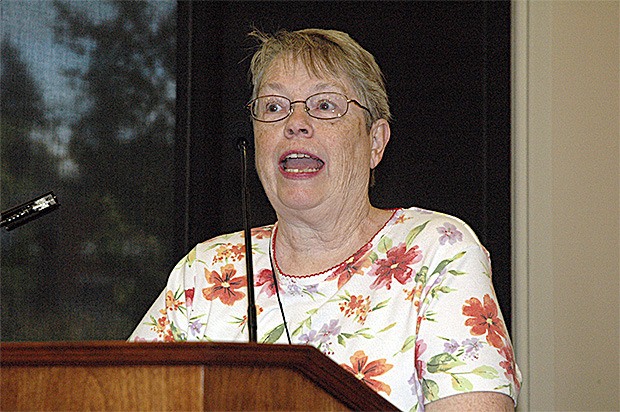ARLINGTON — The City Council’s unanimous decision to adopt a tobacco- and smoke-free law for all city parks Aug. 18 was preceded by some unorthodox testimony.
Although the council’s agenda stipulated that the public comment period was for matters not on the agenda, two of the three citizens who addressed the council did so regarding the proposed law, with the council’s permission.
Douglas Carlson identified himself as a retired employee of the Food and Drug Administration, who was not speaking on behalf of the FDA or any other group.
ADVERTISEMENT
0 seconds of 0 secondsVolume 0%
Press shift question mark to access a list of keyboard shortcuts
Keyboard Shortcuts
Shortcuts Open/Close/ or ?
Play/PauseSPACE
Increase Volume↑
Decrease Volume↓
Seek Forward→
Seek Backward←
Captions On/Offc
Fullscreen/Exit Fullscreenf
Mute/Unmutem
Decrease Caption Size-
Increase Caption Size+ or =
Seek %0-9
“The dangers of cigarettes are not controversial,” Carlson said, in support of the ban. “They release numerous toxic substances which are linked to respiratory and heart disease. By eliminating nicotine pollution, you make your parks better places to engage in healthy activities.”
Carlson echoed Arlington Public Safety Director Bruce Stedman in noting that such a prohibition allows law enforcement to detain criminal suspects.
By contrast, Treelah Gallagher requested that the council exclude electronic vaporizers from the ban.
“I know about two or three folks who have been able to give up smoking through e-vaping,” Gallagher said. “I understand the desire to target the homeless and addicts, but I don’t suppose they would be using those devices.”
Gallagher’s expressed concerns about the prevalence of cigarette waste on sidewalks, in spite of the existing ban on smoking within 25 feet of storefronts, was picked up by council member Chris Raezer. Assistant City Administrator Kristin Banfield responded by noting that the storefront smoking ban falls under the purview of the Snohomish Health District.
“If there are businesses that are not enforcing that limit, the health district will talk to their owners and make them aware of their obligations,” Banfield said.
The council chose to pass the law as submitted, banning both smoking and e-vaping not only on parks and trails, but also the parking lots connected to them. Violation of this law counts as a Class 2 civil infraction, which amounts to a fine of $125.
“That’s just enough to cover the court costs,” said Banfield, who noted that the parking lot adjacent to Legion Park is not included in the restricted areas, because it’s technically connected to City Hall rather than the park.
“I did research e-vaping, and found out that the FDA is researching allegations that they release various toxins,” council member Jesica Stickles said. “Until we know for sure, it’s better to be safe, by including e-vaping in the smoking ban.”
Council member Marilyn Oertle likewise warned that she’d heard of people loading their electronic vaporizers with marijuana oils.
“At first I thought, if they’re not cigarettes, then what’s the problem?” Oertle said. “But this is an issue.”
When council member Dick Butner inquired how well such a law had gone for Marysville, Banfield reported that Marysville Parks and Recreation staff had noted reductions in both secondhand smoke and litter, just as Marysville police had observed a decrease in certain types of criminal activities in the city’s parks.







